I’ve talked about a variety of different subjects related to creator-owned comics- writing craft, networking, promotion, and economics, but one of the areas I haven’t focused on (until now) is a big one: selling at conventions. Last time I covered getting prepared, now let’s talk about interacting with people at the show.
I’m happy to report that the past two years at conventions have been my best in terms of sales. Part of that is because I have a lot of books at different publishers going at the same time, but that’s not the only reason I think my sales are up. Doing well at conventions is an alchemical mix of visibility, product, fan base, price point, and salesmanship… and it varies from show to show.
Each convention has its own feel. If you want to make the most of the convention ‘circuit’ you have to figure out which types of shows work best for you and try new ones to expand your reach and engage new readers. Convention culture changes, it evolves. Unfortunately you can’t do the same thing each time and expect the same results. With the growth of fan culture and the expansion of conventions all over the world, a very large and different crowd of people are now attending and if you’re not a major creator doing high profile work you’re going to have to adjust with the times in order to succeed.
Everything is changing quickly thanks to technology and the nature of our collectible culture (of which comics are smack dab in the middle of) is undergoing massive upheaval. It alters the way we consume media and you need to understand that when you’re sitting behind a table trying to sell your wares to strangers.
When we were younger, having a collection was a big deal: music, books, movies, whatever. It was part of our geek identity. Now we all have massive digital movie, book, and music collections at our fingertips and it’s changed the way we value and obtain media. Some people still collect whole hog, but many fans are far more focused/selective than they used to be. Selling entertainment is tougher than ever because it’s plentiful and cheap.
What cuts through all of those difficulties is the value of an experience. People in 2015 don’t just want to buy “stuff”, they want something special. They go to prestigious restaurants with unique menus. They throw elaborate theme parties. They travel to far off places and make sure they snap a photo to prove they were there. More than ever before the experience is just as valuable (maybe even more valuable) as what they purchase.
If people can buy things cheaper online (or for nothing if they pirate it) or more conveniently at their local comic shop, you have to give them an experience and offer something unique they can’t get anywhere else in order to consistently make sales at conventions.
Here’s how I do it: I offer me; the interaction, the signature, and my genuine appreciation of you, the reader. The experience is enthusiastically getting a comic from the person who makes it. I do everything I can to make that connection and give people a positive convention encounter.
When someone comes up to my table, it’s not just a cold “purchase and go” scenario. It’s a social interaction and it has to be genuine. They might buy something but they’re also having an engaging conversation, something personal and hopefully memorable. I have a handful of seconds to make an impression and, if it goes well, they might be a loyal reader from then on.
Whatever you do, don’t just talk about yourself. Ask people about their day, where they came from, what they’re most excited about at the show. Listen just as much as you speak. If you see that they have an Exhibitor or Pro badge, ask about their work or how the show is going for them. Make it a two way interaction instead of a one way sales pitch and you’ll be surprised how much more receptive people will be to hearing about what you do and possibly supporting it with a purchase.
Don’t stereotype the people looking at your work. Some of the most enjoyable conversations I’ve had at shows were with people who you wouldn’t peg as “fans” in the typical sense. The convention experience is broader and more inclusive than ever before and with shows like The Walking Dead doing record numbers on TV and movies like The Avengers crushing at the box office people are more open to reading comics than they have been in a long time. Talk to everyone and you’ll be surprised how many might be receptive.
Does that sound obvious? Sure, but I still see dozens of creators, new and old, putting their stuff on a table and ignoring people unless money is coming out of their wallet. They make the whole thing commerce first, and it’s a real turn off for most attendees. Worse still, if sales are poor at the start of a show their attitude worsens as the weekend carries on, creating a negative feedback loop that’s almost impossible to pull out of – People suck because sales suck and so the show sucks.
For me, interacting with people is part of the joy of doing conventions. I get to leave my solitary workspace at home and meet people who enjoy what I do while also encouraging new readers to jump on board and read the stories I create. That enthusiasm carries through in how I interact with the people who come by my table and it’s helped me do well at conventions near and far.
When I finish a day at a show, my throat is hoarse and my brain is fried. I push really hard to be ‘on’ at conventions. Ask anyone who’s met me. I genuinely love it, but it can be exhausting. I totally understand if that approach is not for everyone, especially if you’re not normally socially gregarious. I don’t have a foolproof way of generating sales for everyone, just a bit of advice on engaging the audience that’s worked well for me.
If you have something of quality and want to make an impression, think about the people you’re selling to and make it an enjoyable experience for them instead of focusing solely on the monetary transaction that benefits you.
Going to conventions has proved to be a big boost for my career. Many of the comic projects I’ve done can be traced back to the wonderful people I met at shows and the conversations we had there. A great convention reminds you about the energy and excitement that comes from this industry and, ideally, puts a few bucks in your pocket at the same time.
In future articles I’ll talk about setting up your table, pricing, and travelling to other countries for shows.
If you find my sales and tutorial blogposts helpful, feel free to let me know here (or on Twitter), share them with your friends, and consider buying some of my comics to show your support. Thanks!

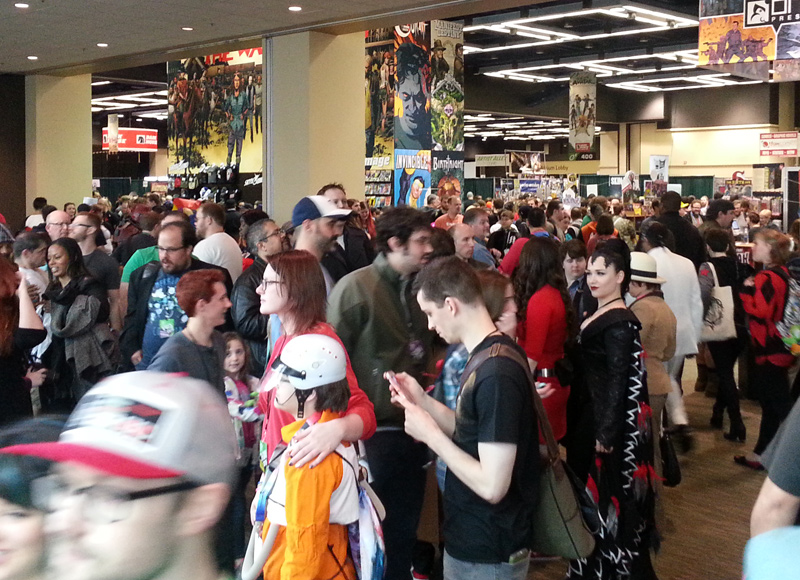
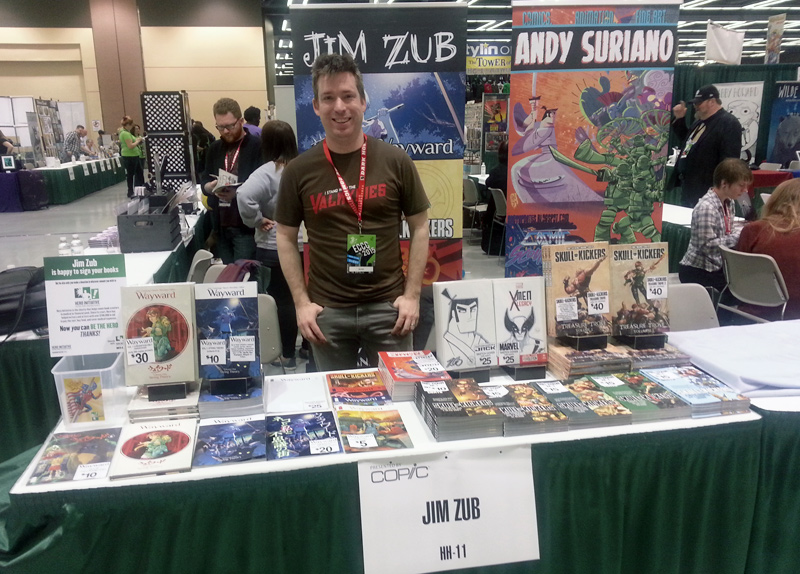
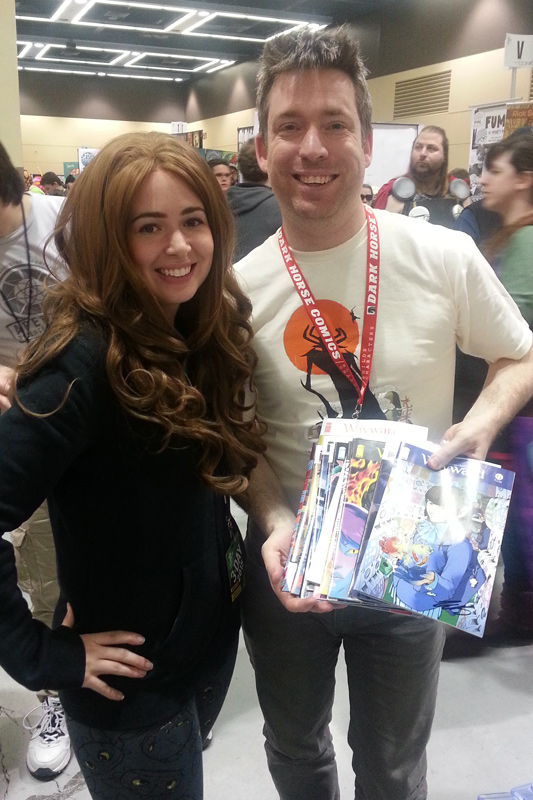
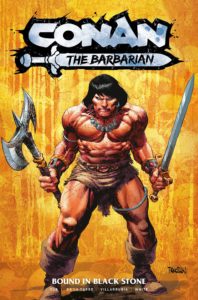


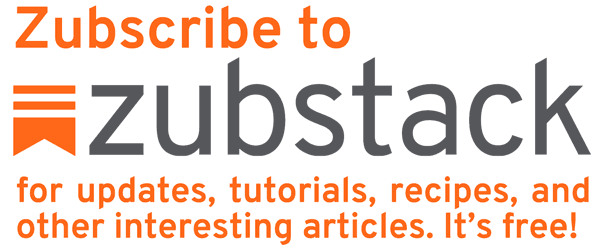
 Zub on Amazon
Zub on Amazon Zub on Instagram
Zub on Instagram Zub on Twitter
Zub on Twitter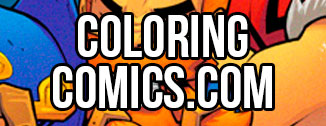
Thanks so much for posting this! As someone just getting started these kind of articles and tips take some frustrating guess work and research away.
And as a customer I can attest that it works! That’s exactly how Jim Zub handled our interaction at PaizoCon a couple of years ago. I left there with a couple of drawings, and a coveted signed Skullkickers volume (every other Skullkickers has been digital from comixilogy). Because of that experience I now follow On social media, have read 5+ of his series, etc.
It helps that Jim Zub’s stuff is awesome!